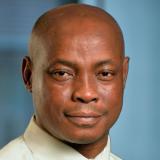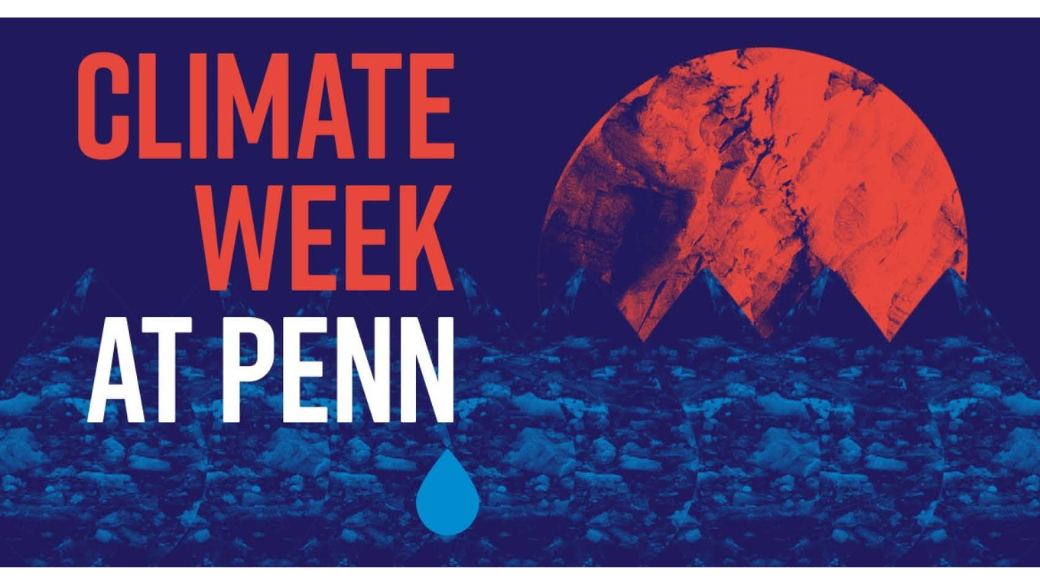
This panel will examine the impact of climate change on global water resources and how these impacts have affected people in the global south. From droughts that have led to crop failures to floods that have damaged crops and property, it is obvious that climate change has brought extremes in weather and has compromised the availability of clean water to peoples in developing countries where resilience against changing climate are fragile at best. Panelists will offer engineering and hydro ideas that can lead to improvement of the current situation.
Speakers

Doug Jerolmack
Jerolmack received his undergraduate degree in Environmental Engineering from Drexel University, and his PhD in Geophysics from MIT. He is a professor in both the Departments of Earth and Environmental Science (EES) and Mechanical Engineering and Applied Mechanics (MEAM). Jerolmack's lab conducts experimental and field research on the physics of the environment, focusing on how flows of water, air and soil shape the landscape and affect humans. Much of his research examines the implications of climate change on landscapes through a mechanistic lens: for example, how increasing flood intensity reshapes rivers, how deserts expand, and what controls the formation and hazard potential of landslides and debris flows. Jerolmack teaches courses related to these topics in both EES and MEAM, and is passionate about helping to build an inclusive community of scientists and engineers to solve environmental problems.

Tony Sauder
Tony Sauder is a registered professional engineer and geologist with more than 30 years of experience in water resources, hydrogeology, and environmental engineering. His diverse experience includes evaluating water harvesting in semi-arid regions of central Africa; testing a high capacity public water supply well in New Jersey; and determining protective discharge limits based on low flows in a Pennsylvania stream. He has lived internationally for over 10 years and has worked on international projects involving water supply and/or sustainable development in Chad, Sudan, Honduras, the Dominican Republic, and Belize. In his community development work, Tony has sought to facilitate access to water and sanitation to improve health and quality of life. Tony continues to consult as a Senior Engineer/Hydrogeologist at Pennoni, blending his academic and practical experience. He also serves as a professional mentor to Penn Engineers Without Borders (EWB) for water and sanitation projects in Honduras, Guatemala, and Cameroon. He is a board member of the Global Water Alliance, serving on the projects committee, visiting Kenya and India, evaluating projects, and participating in water conferences. Tony received a dual Master of Science in Civil Engineering and Engineering Geology from Drexel University in 1996 with a concentration in hydrogeology.

Irina Marinov
Irina Marinov is a climate scientist and modeler working at the interface of chemical, biological, physical oceanography and large-scale atmosphere and climate dynamics. She runs climate models and analyze output of the latest generation of climate models and satellite data, to understand and predict changes in ocean circulation, and the global carbon, nutrient, oxygen and energy cycles on the planet. At Penn, she teaches classes on “Global Climate Change” and “Ocean-Atmosphere Dynamics”. While at Penn she received the Provost’s Undergraduate Research Mentorship award.

Jimmy O. Adegoke
Professor Jimmy Adegoke is a senior tenured faculty member at the University of Missouri-Kansas City (UMKC) where he was Chair of the Department of Geosciences (now Earth & Environmental Sciences) from 2008 to 2010 and Director of the UMKC Center for Applied Environmental Research (CAER) until recently. He is currently a senior consultant with the Climate Change and Green Growth Department of the African Development Bank Group while on leave from UMKC. Professor Adegoke served as Interim Executive Director/CEO of the West African Science Service Center for Climate Change and Adapted Land Use (WASCAL) from April to December 2017 and was previously Executive Director of the Council for Scientific & Industrial Research (CSIR) Natural Resources & Environment (NRE) Division, Pretoria, South Africa from 2010 to 2012. He is an award winning climate scientist and globally recognized environmental leader whose work cuts across science, climate policy, environmental governance and cross-institutional capacity building. His recent research focuses on societal impacts of environmental change, including air pollution studies in rapidly changing mid-latitude urban areas, water cycle processes in sub-Saharan Africa and climate impacts on coastal ecosystems across multiple locations in Africa. His research has been funded by agencies such as NASA, US National Science Foundation and the African Development Bank. Professor Adegoke served as Chair of the Ministerial Advisory Committee on Agricultural Resilience in Nigeria (ACARN), which was commissioned in 2014 by the Federal Ministry of Agriculture and Rural Development (FMARD) to develop a national program on climate adaption and agricultural resilience for Nigeria. He sits on multiple international science advisory boards/committees and maintains permanent residence in Kansas City where he was an appointee of the Mayor of Kansas City Missouri (KCMO) on the city’s Environmental Management Commission (EMC).
Moderator

Ocek Eke
Ocek Eke, PhD is the Director for Graduate Students Academic Programming at Penn Engineering. In this role, Dr. Eke is responsible for organizing and overseeing service learning courses in Philadelphia, Rwanda, Ghana, Hong Kong, China, Argentina, and Guatemala.
Prior to assuming his current position, Dr. Eke served as a senior consultant and Editor for Nigeria’s Federal Ministry of Agriculture and Rural Development where he worked on climate change and agriculture resilience.
Dr. Eke has taught global studies and international communications at Penn State and UNC Chapel Hill, he has written peer reviewed publications and a book chapter. Dr. Eke received his Bachelor of Arts degree in Telecommunications and Foreign Service, and Master of Arts degree in Communication Studies from Baylor University; he received his Ph.D. in Mass Communication Research from The Pennsylvania State University, University Park.

